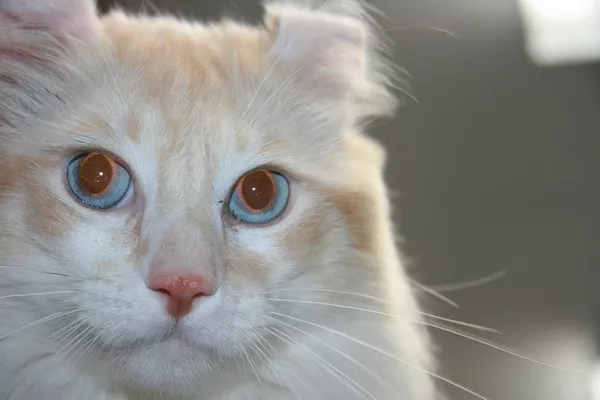Fading Kitten Syndrome is a term used to describe a set of health issues that can affect newborn kittens, often leading to their untimely death. It is crucial for cat owners, breeders, and veterinary professionals to be aware of this syndrome to ensure the best possible care for vulnerable feline infants. In this article, we will explore the causes, symptoms, and management strategies related to Fading Kitten Syndrome.
What is Fading Kitten Syndrome?
Fading Kitten Syndrome refers to a group of conditions that result in weak immune systems and overall poor health in newborn kittens. It is not a specific disease itself but rather a collection of symptoms seen in compromised kittens. These symptoms typically manifest within the first few weeks of life and can range from mild to severe.
Causes of Fading Kitten Syndrome
Several factors can contribute to the development of Fading Kitten Syndrome. Some of the common causes include:
1. Inadequate Nutrition: Kittens rely on their mother’s milk for essential nutrients, antibodies, and maternal care. Lack of proper nutrition during this critical phase can weaken their immune system and make them susceptible to infections.
2. Poor Maternal Care: Neglectful or inexperienced mother cats may fail to provide adequate warmth, grooming, and stimulation to their kittens, which are essential for their healthy development. This can lead to weakened immune systems and various health issues.
3. Infections: Newborn kittens have fragile immune systems, making them highly vulnerable to infections. Viral, bacterial, or fungal infections can quickly overwhelm their young bodies, causing severe illness.
4. Birth Defects: Certain congenital abnormalities or genetic disorders present at birth can predispose kittens to fading kitten syndrome. These defects may affect vital organs or bodily functions, impairing their overall health.
5. Environmental Stressors: Exposure to extreme temperatures, excessive noise, drafts, or unsanitary conditions can place undue stress on vulnerable kittens, making them more susceptible to health issues.
Symptoms of Fading Kitten Syndrome
Recognizing the signs of Fading Kitten Syndrome is crucial for timely intervention. The following symptoms may be observed:
1. Weakness and Lethargy: Affected kittens may appear weak, lethargic, and have difficulty nursing or maintaining body temperature.
2. Poor Weight Gain: Kittens with Fading Kitten Syndrome often fail to gain weight at a normal rate or may even lose weight despite adequate feeding.
3. Failure to Thrive: These kittens may exhibit stunted growth and development compared to their littermates.
4. Decreased Appetite: Affected kittens may display a reduced interest in feeding or refuse to nurse altogether.
5. Dehydration: Dehydration can occur due to inadequate fluid intake or underlying health issues.
6. Respiratory Distress: Rapid or labored breathing, coughing, sneezing, or nasal discharge may indicate respiratory infections.
7. Gastrointestinal Issues: Diarrhea, constipation, vomiting, or bloating can be seen in kittens suffering from Fading Kitten Syndrome.
Management and Treatment
Early identification and prompt intervention are essential for improving the chances of survival in kittens with Fading Kitten Syndrome. Here are some crucial management strategies:
1. Veterinary Consultation: Seek immediate veterinary care if you suspect Fading Kitten Syndrome. A thorough examination and diagnostic tests can help determine the underlying cause and guide appropriate treatment.
2. Hydration and Nutrition: Dehydrated kittens may require intravenous fluids, while those with poor appetite might need supplemental feeding through syringe or tube feeding. Specialized kitten milk replacers can provide the necessary nutrients.
3. Temperature Regulation: Provide a warm and draft-free environment to help maintain the kitten’s body temperature. Use heating pads or warm blankets, ensuring they are not too hot to avoid burns.
4. Isolation and Quarantine: To prevent the spread of infections, isolate affected kittens from healthy ones until their condition stabilizes.
5. Medication and Supportive Care: Depending on the underlying cause, kittens may require medications such as antibiotics, antivirals, or dewormers. Additional support, including oxygen therapy or nebulization, may be necessary for respiratory issues.
6. Intensive Nursing Care: Hand-rear kittens if the mother is unable or unwilling to care for them properly. This includes regular feeding, grooming, and stimulation to encourage normal development.
Conclusion
Fading Kitten Syndrome encompasses a range of health issues that can severely impact the well-being of newborn kittens. By understanding the causes, recognizing the symptoms, and implementing appropriate management strategies, we can improve the chances of survival and overall health in these vulnerable feline infants. Timely veterinary intervention and proactive care are vital to combat Fading Kitten Syndrome and provide the best possible start in life for these tiny.


























